The Forest Aviation Headquarters (FAH) conducted an intensive “Forest Fire Management and Drone Education” training program from May 20 to 23, 2024, in collaboration with the Capacity Building and Evaluation Team of the Asian Forest Cooperation Organization (AFoCO). This four-day event aimed to enhance the disaster response capabilities and resource management strategies of fellowship officials from Cambodia, Indonesia, Kazakhstan, Kyrgyzstan, Myanmar, and Thailand.
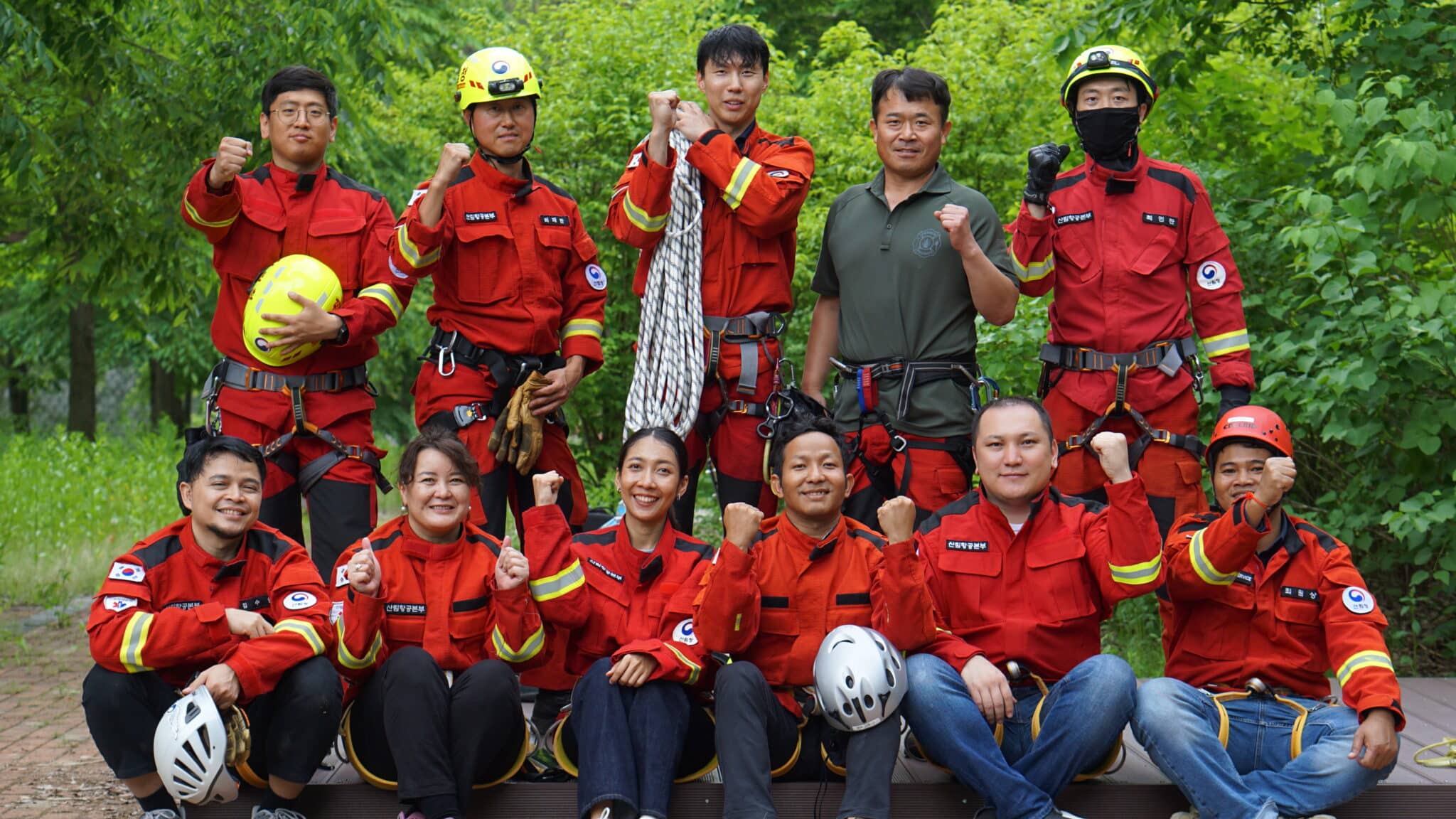
The program was designed to provide fellowship officials with:
- Fire Suppression Strategies: Education on containing forest fire spread, understanding fire behavior, and the factors influencing it.
- Practical Firefighting Skills: Training in rappel techniques and the use of fire pumps.
- Drone Operations: Hands-on training to enhance the capability to manage and monitor forest fires from aerial perspectives.
Key Activities
Day 1: Participants were introduced to the basics of forest fire protection, including the fire triangle, fire types, and various fire extinguishers.
Day 2: Focused on the firefighting scheme of FAH, covering job descriptions, team roles, and specifications of helicopters used for large-scale firefighting.
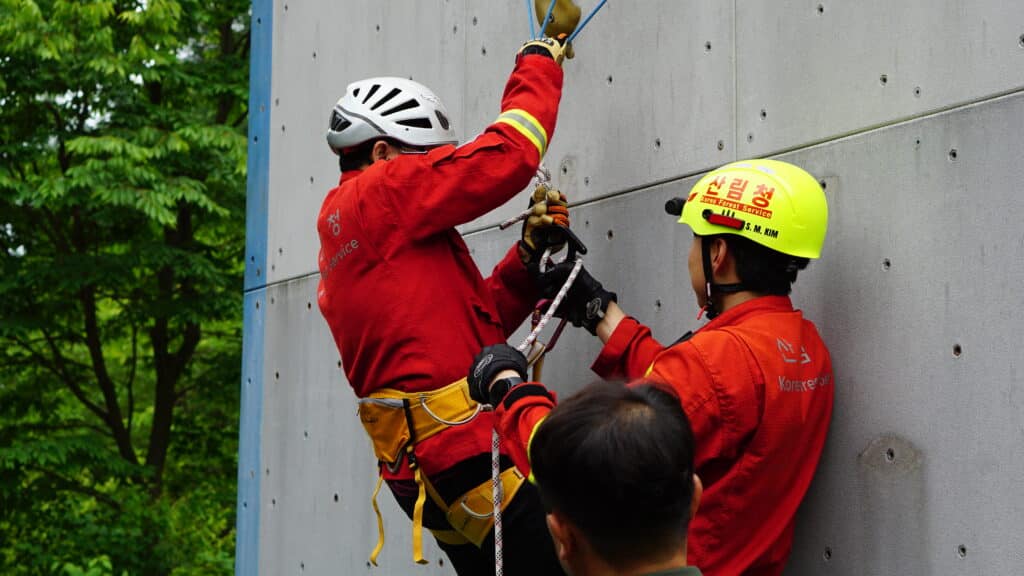
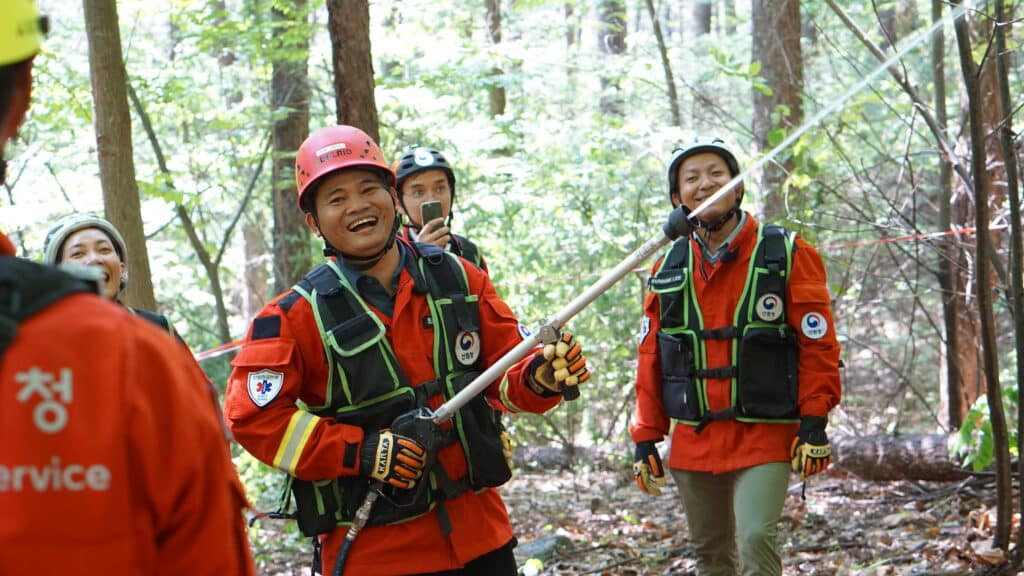
Day 3: Detailed training in unmanned aircraft technology (drones) for fire prevention and extinguishing, including practical exercises in drone operation and fire condition analysis.
Day 4: Concluded with technical discussions and the awarding of certificates to participants.
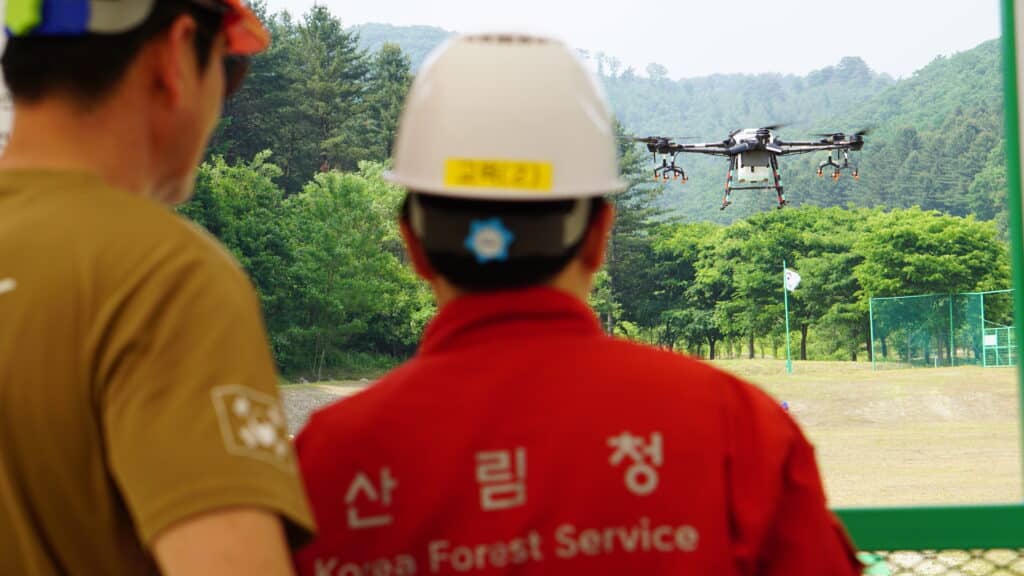
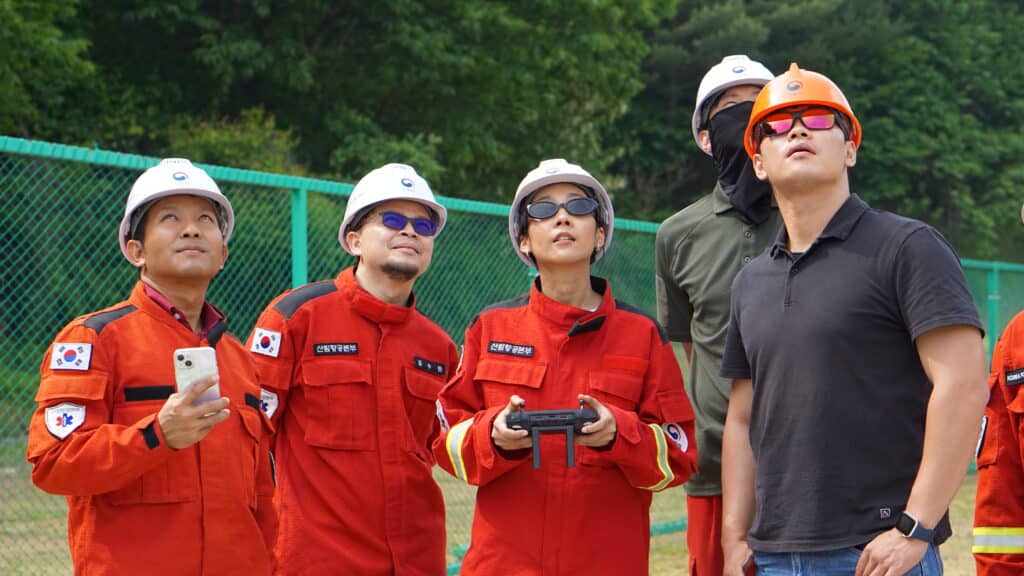
Highlights and Participant Feedback
Six fellowship officers from AFoCO member countries participated enthusiastically in the training.
ORK KRUY, Fellowship Official from Cambodia
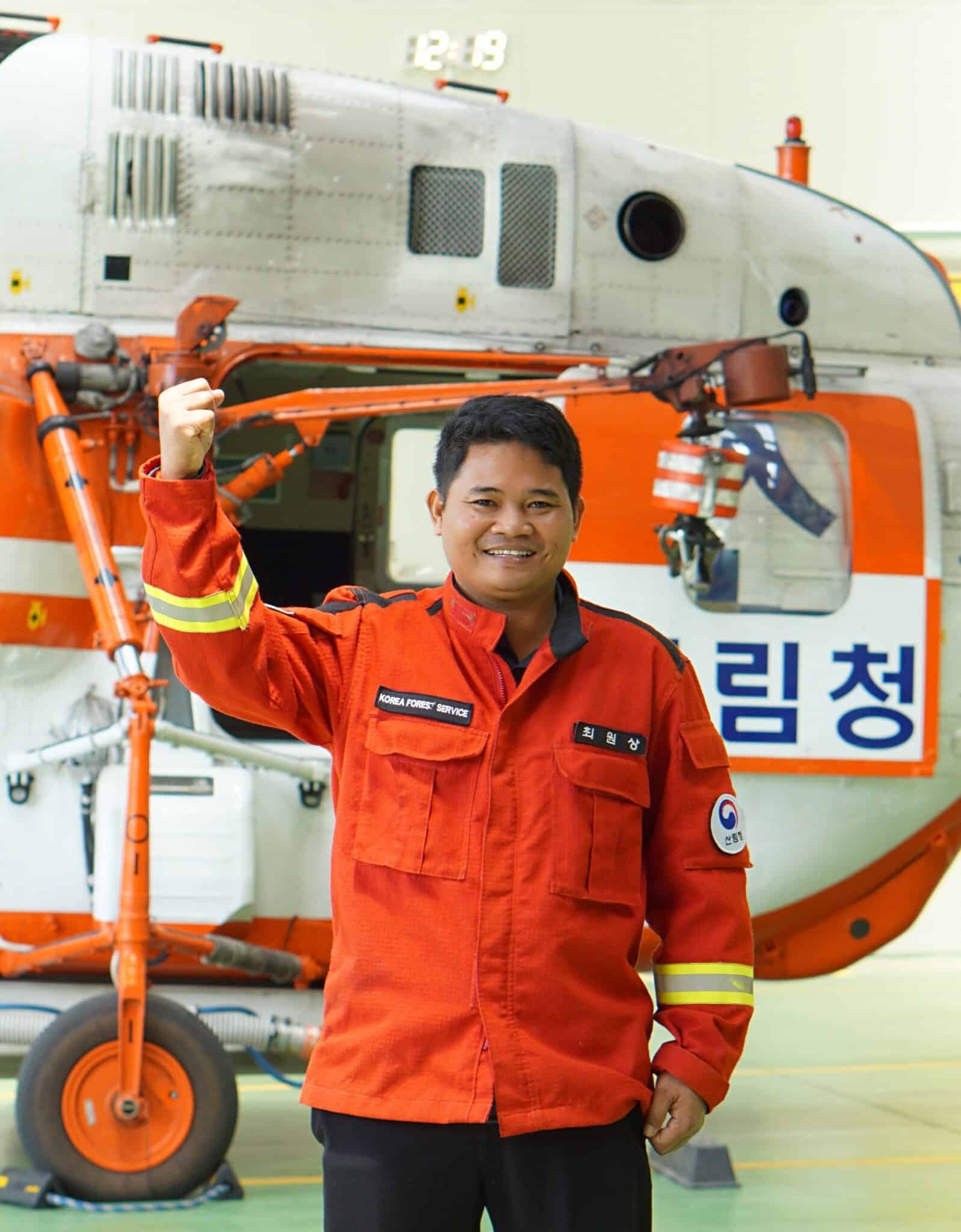
“I would like to express my sincere gratitude and appreciation to Forest Aviation Headquarters, AFoCO, and the staff who organized the training on Forest Fire Suppression and Drone Flight for the Fellowship officials of batch 2024. The insights gained from this training have been invaluable to me. The training offers both classroom lectures and hands-on field practice, including rappelling or descending via a rope, wall climbing, breaking forest fire lines, spraying water to suppress forest fires, techniques for personal protection against forest fires, rescuing people from forest fires, and drone flying. I am particularly intrigued by the use of drones, a technology and innovation, for observing forest fire situations. In my country, we experience two seasons: the rainy season and the dry season, during which forest fires frequently occur. I am enthusiastic about sharing the techniques and perspectives acquired from this training with my colleagues and within my institution to effectively manage forest fires using these methods”
Eko Sutrisno, Fellowship official from Indonesia
“Firstly, I want to thank Forest Aviation Headquarters for their time and teaching. These activities provided us with diverse perspectives on forest protection, especially for tropical countries. We learned valuable lessons on fire types and control strategies. The experience highlighted the importance of coordination, technology, and teamwork. I will share this with my ministry. You are natural heroes. To quote Martin Luther King, Jr., ‘We are not makers of history. We are made by history.’ Thank you for your support. Looking forward to our next collaboration.”
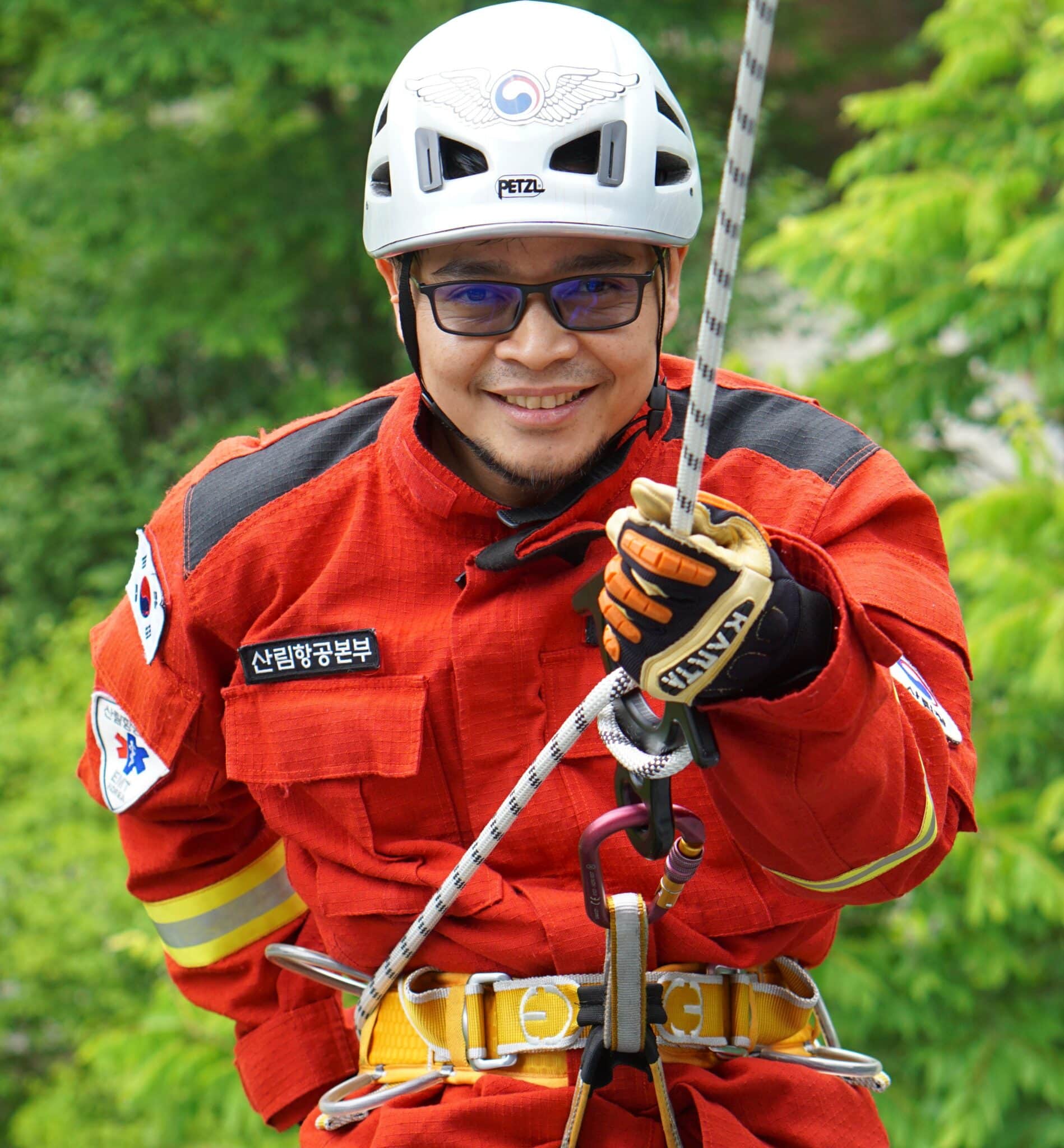
Seideeva Siuzanna, Fellowship Official from Kyrgyzstan
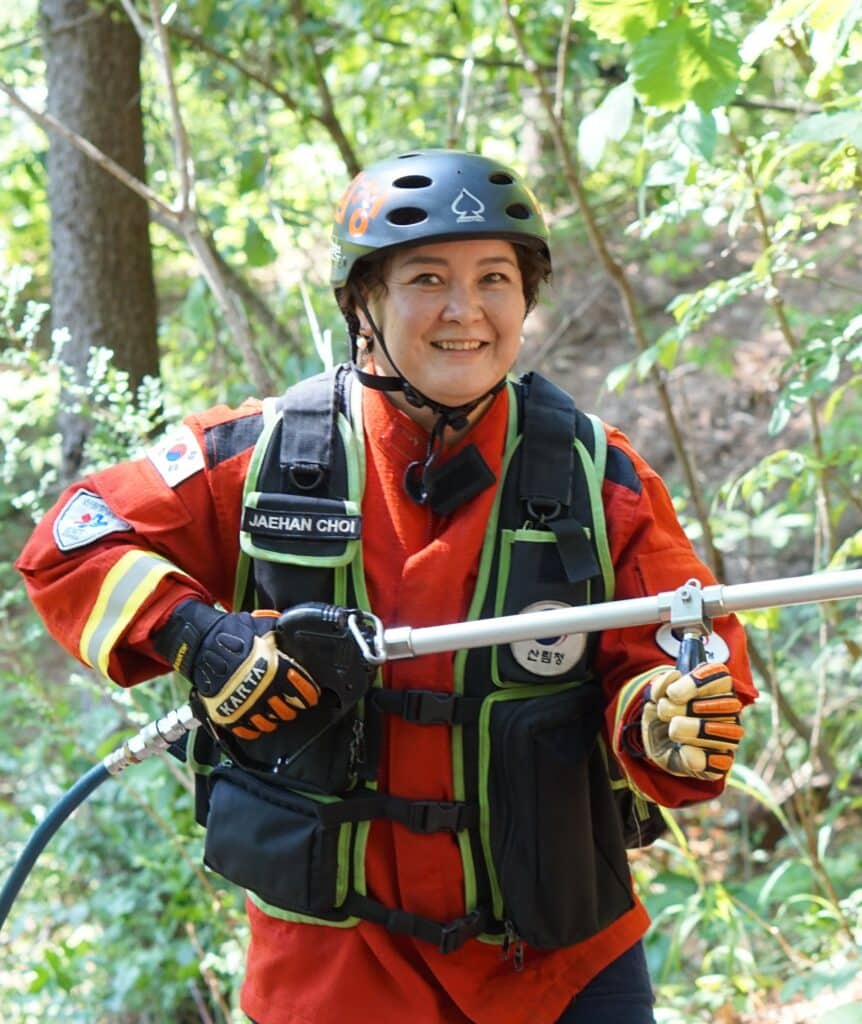
“I want to note how beautiful it is and thank you and AFoCO for the opportunity to visit such a stop. Secondly, I want to express my deep gratitude to our instructors during the time and efforts spent on us. For me, this is a new experience since I work in the department, which is engaged in landing, seeds and seedlings and not forest fires. I especially want to note the control of the drone. I believe that it is necessary to introduce new technologies not only in fire events but also in forest monitoring. Perhaps if Afoko supports it will be possible to organize the training of our foresters with the participation of your instructors. I already have design ideas”
Madi Nurpeissov, Fellowship Official from Kazakhstan
“I want to express my sincere gratitude for organizing the Study Visit Program ‘Forest Fire Management Training and Drone Education’ at the Forest Aviation Headquarters. This initiative provided me with invaluable experience and inspiration in forest fire management. Your detailed attention and professionalism created an ideal learning environment. I gained practical skills in fire management, modern equipment, and drone usage. Your dedication has made us more competent in responding to natural disasters. I propose a memorandum for modernizing Kazakhstan’s Forest Aviation Protection with your expertise. I am ready to contribute to this collaboration, confident it will enhance forest fire protection in both countries.”
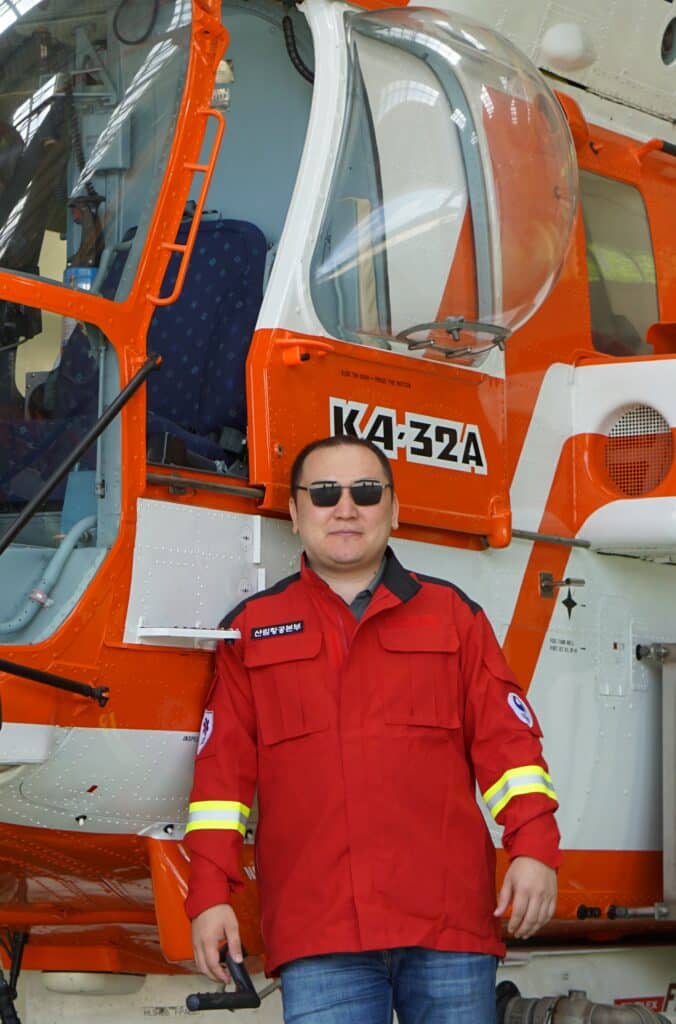
Pudsakorn Neamsawat, Fellowship Official from Thailand
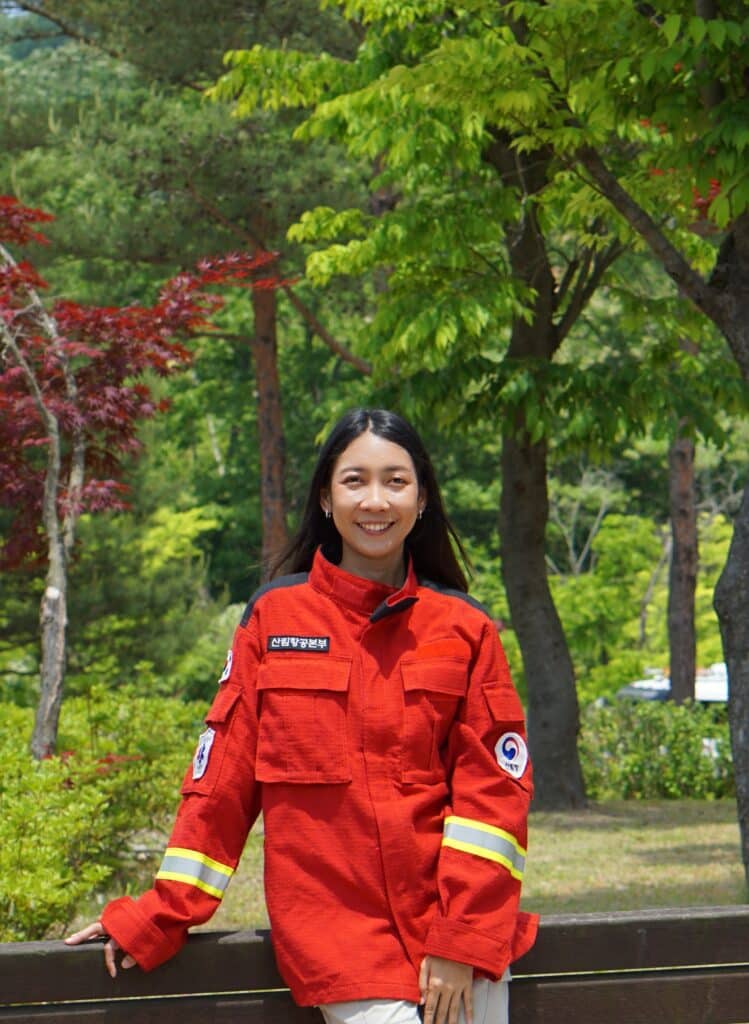
“Firstly, this is my first time attending the Drone and Forest Fire Management training. The training has been enriching, providing valuable knowledge and experience. As my job involves forest biodiversity, I recognize the significant impact of forest fires. Learning about firebreak lines to protect communities, wildlife habitats, and resources was particularly meaningful. I was impressed with every session, especially learning to control drones, which I enjoyed and see as a new skill. I suggest adding 1-2 extra days to explore topics in-depth, enhancing our knowledge and allowing us to discuss experiences with experts. The Thai government uses technology and strategies, including drones, for fire detection and control. However, there is a need for more technology, equipment, and forest firefighters given Thailand’s vast forest areas.”
Tluang Hmung Thang, Fellowship Official from Myanmar
“It is my great honor to participate as a Fellow of AFoCO and a trainee here at the Forest Aviation Headquarters! As a field staff forester, I have attended many theoretical and on-site trainings, but this is my first fire management training. I am impressed by the readiness of the staff here, contributing not only locally but internationally. Practical experience is invaluable, and I suggest incorporating varied suppression methods with different equipment. Lastly, I deeply appreciate all firefighters risking their lives to protect forests, biodiversity, and citizens’ wellbeing. Congratulations to you and your supportive families!”
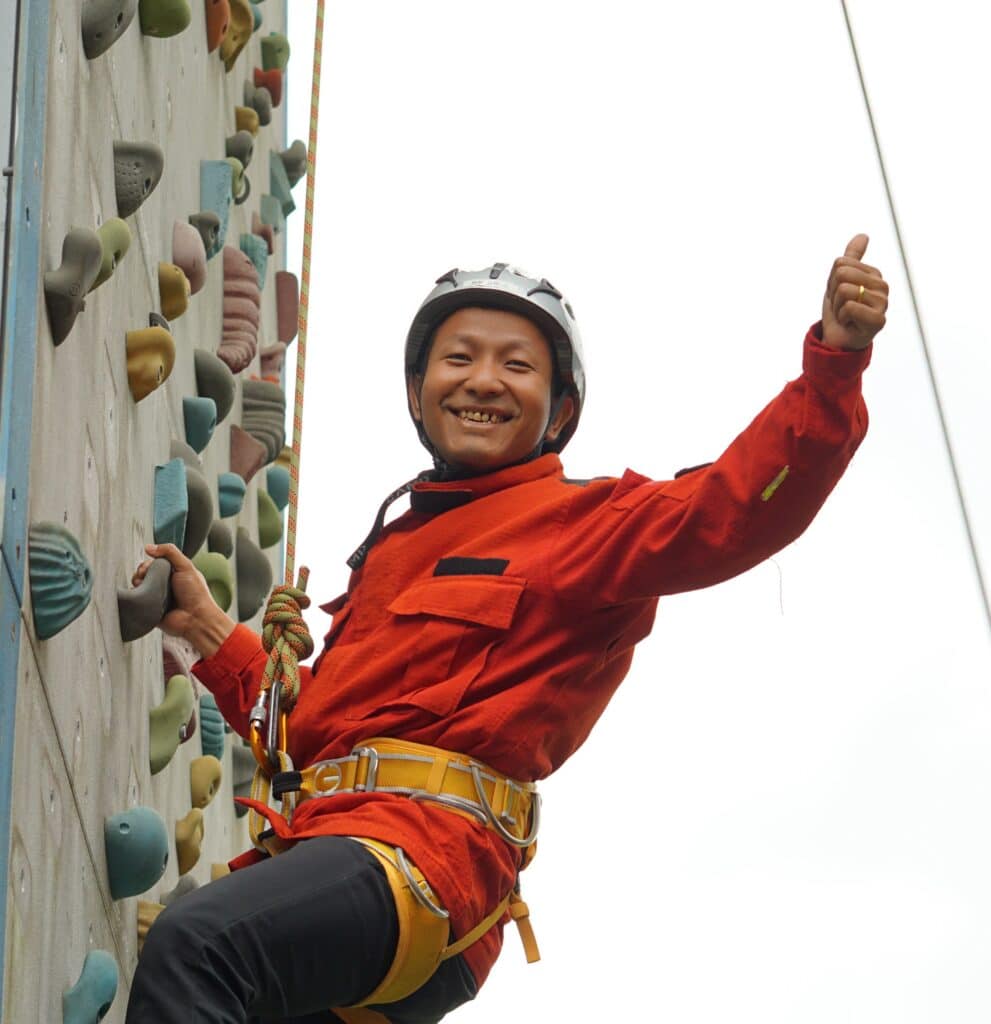
Director General’s Remarks
Mr. Ko Ki-Yeon, Director General of FAH, appreciated the participants’ enthusiasm and the opportunity to share Korea’s advanced forest protection technologies. He emphasized the importance of adapting these technologies to different forest types and encouraged ongoing communication among fellowship officials.
“Although our forest typologies are different, the spirit to protect forests must always be there. The technology in Korea can be a reference for AFoCO member countries. We hope that specific collaboration can be done. The adoption and adaptation process of the existing technology can be modified according to the type of forest fires in each country. To the fellowship officials, congratulations on becoming alumni, please maintain communication,” concluded Mr. Ko Ki-Yeon during the closing ceremony.
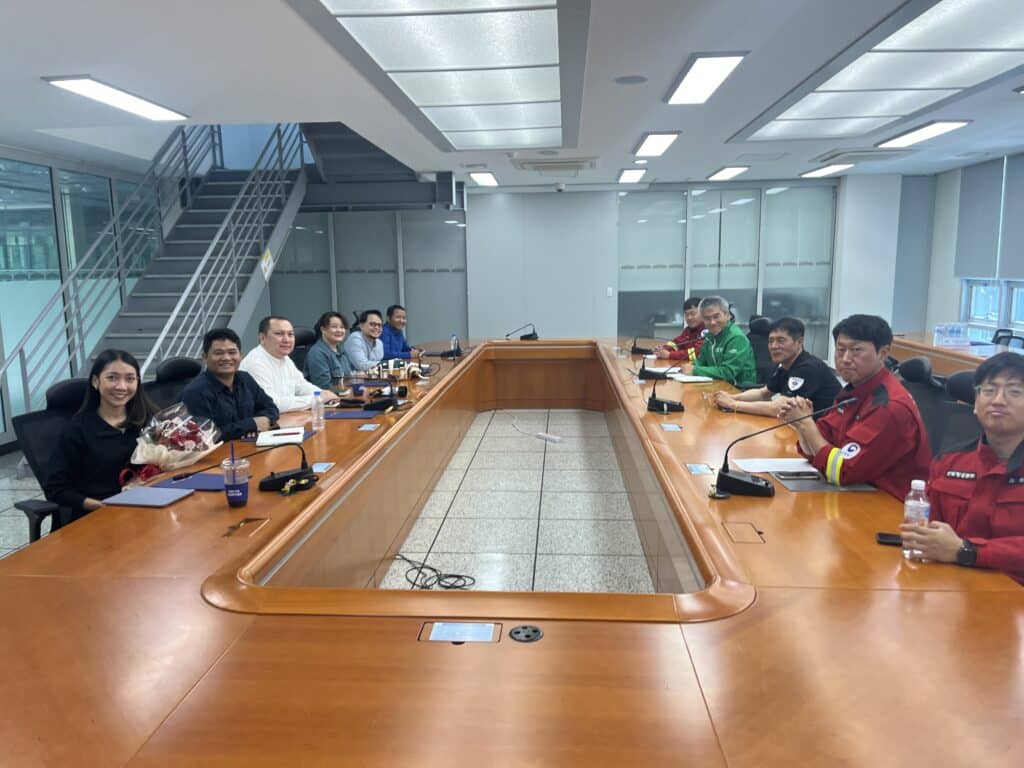
Conclusion
The training underscored the necessity of technological integration in forest fire management and highlighted the commitment required from all parties to protect forests. By equipping officials with advanced skills and fostering international cooperation, the program significantly contributed to the global effort in forest conservation.
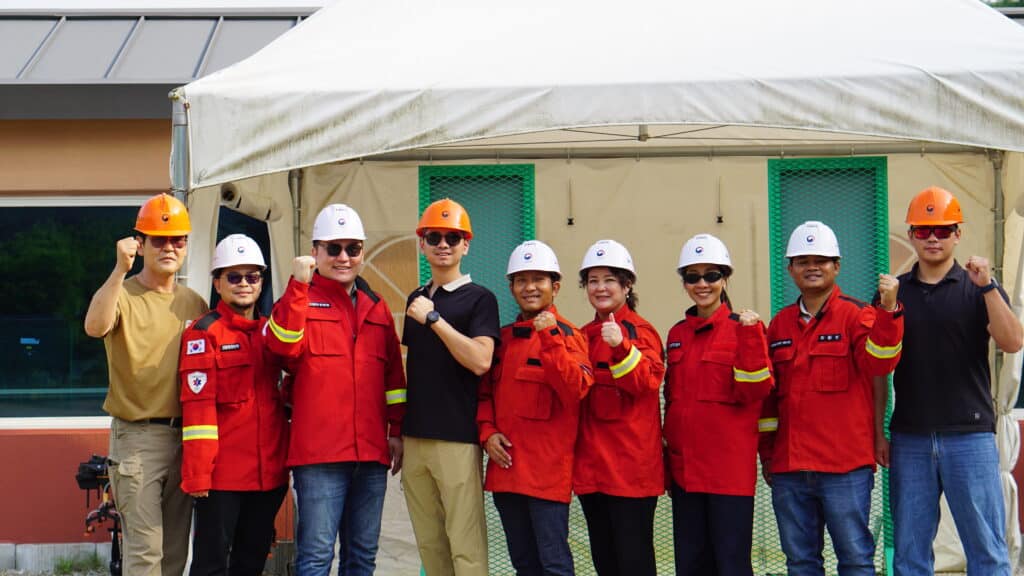
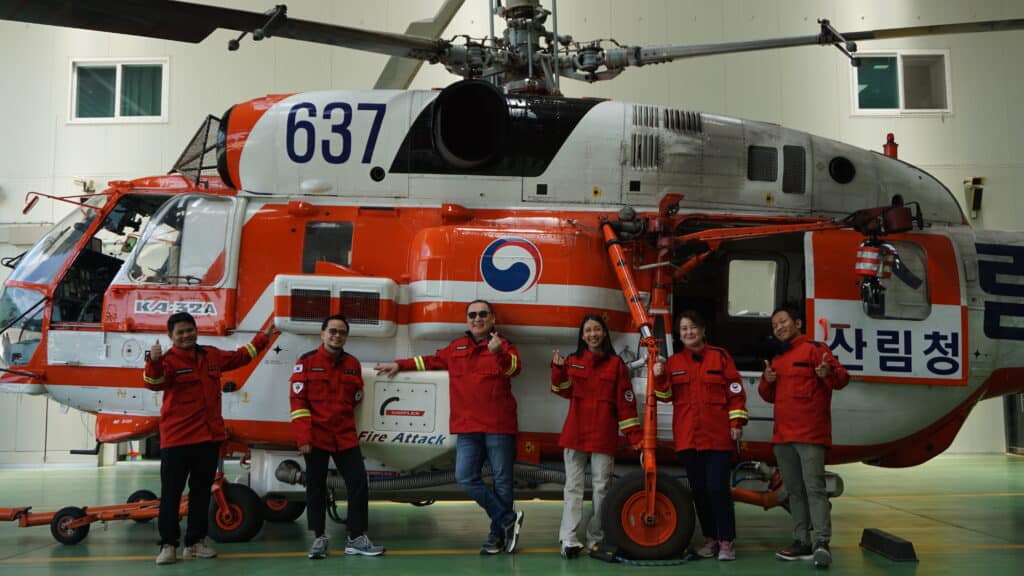
Key Takeaways
- Forest fires are often caused by human activities, necessitating preventive measures through public education.
- Technology plays a critical role in anticipating and extinguishing fires, offering accuracy in decision-making.
- Forest protection requires real action and collaboration from all stakeholders.
This comprehensive training program exemplifies the commitment to advancing forest fire management and drone technology, fostering a collaborative effort to protect and preserve our global forests.
AFoCO 2024 Fellowship Officials, would like to express our heartfelt gratitude to Director General Mr. Ko Ki-Yeon and his team at the Forest Aviation Headquarters for facilitating this outstanding learning experience at the FAH. Additionally, we extend our deepest appreciation to our training instructors, Mr. No Doo-Hwan, Mr. Choi Jae-Han, Mr. Park Kwang-Bok and the entire team for their excellent lessons on forest fire suppression and drone operation.
Contributed by 2024 Six (6) Fellowship officials

